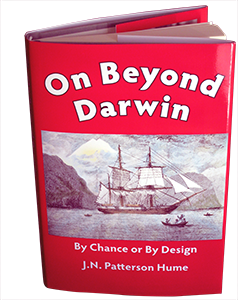Original Preface
Over the years I have collected quotations from papers and books which for various reasons were meaningful to me, just as people collect scraps of material in a ragbag. I thought it was time to open my ragbag and sort things out—to systematize all these odds and ends. I found that they fell into a number of categories or should I say—I put them into categories. I imagined that I could run a narrative through the quotations so that a coherent pattern would emerge. In this way, I would at least organize my own thoughts and perhaps help others to do the same.
So I began, with the help of a computer text editor and cooperation from my secretary Gwen Jacobs who used the whole project as the incentive to learn about text entry and editing on a computer. Inge Weber has handled revisions.
And now it’s time to present my efforts.
A number of my friends and colleagues have read a draft of this book, and I have benefitted greatly from their constructive criticisms. Since I wrote the book to be read by as wide an audience as possible, the sample of people I chose to preview the draft was broad. It included W.O. Fennell (a systematic theologian), William Swinton (a Darwin expert), G.D. Scott and B.P. Stoicheff (physicists), Robert Finch (a French scholar), Charles Rackoff (a theoretical computer scientist), Stephen Hume (my son who also happens to be a computer scientist), R.C. Holt (a computer systems expert with whom I have coauthored books on computer programming), J.H. MacLachlan and R.B. de Sousa (philosophers of science), Phyllis Gotlieb (a science fiction writer), C.C. Gotlieb (a physicist turned computer scientist), Leslie Jones (a publisher’s representative), and many more.
At the risk of giving the plot away and spoiling the suspense, I am starting with a summary of the basic ideas that I present in the book. This may be helpful as a general map of the territory that I have explored. Much of what is included in the book is well-accepted scientific knowledge but my own speculations and those of others are an integral part of the story. I have summarized these unorthodox views clearly after any chapter that contains them.
I could say more here, but I would rather let the book speak for itself.
J.N. Patterson Hume
University of Toronto, 1983


